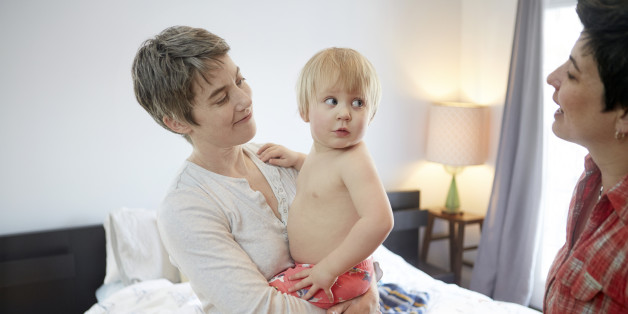Raising Children Queerly: Four Books For Summer Reading
In full disclosure, I often describe myself as not being a “kid person.” And it’s true — when I came out in the early 1980s, I thought I was off the hook for getting married and having children. Whew. I chronicled my young child-free lesbian life in Tea Leaves, a memoir of mothers and daughters (2012, Bella Books):
“It was the early 1980s, a few years before lesbians were starting to take trips to the sperm banks. Most of the lesbians we knew with children had them in previous marriages — to men — and more than a few women we knew had been through painful custody battles.”
Things changed rather rapidly — but not for me. I successfully avoided the lesbian baby boom of my generation and some peer pressure to adopt. Now — safely past the child bearing and even the adopting age — I find myself wondering if LGBTQ people have changed the face of parenting — or if they what they do is any different than other (heterosexual) parents?
Society has changed, in large part, to accommodate us. But have LGBT people, in particular by parenting, changed society? Almost magically, recently published books started arriving in my mailbox to help my understanding.
Gay Fathers, Their Children, and the Making of Kinship (Fordham University Press) by Aaron Goodfellow is the most academic of the books. It quotes Michel Foucault, the innovative French philosopher, whose work much of Queer Theory is based on. In a lay person’s terms, Foucault’s work emphasizes thinking outside the box and explains how society polices itself to maintain a conservative social order. As Goodfellow writes, Foucault
“has famously described it is not the specter of two men having and enjoying sex that unsettles the social order. Rather, it is the specter of two men who have had sex living happily and tenderly ever after that proves unbearable.”
Goodfellow’s book is a survey of many different gay men who have decided to become fathers. It emphasizes that gay men being fathers challenges the social order because there are two men — not one — in charge (as opposed to Father Knows Best).
Saving Delaney, From Surrogacy to Family (Cleis Press) by Andrea and Keston Ott-Dahl chronicles the story of a lesbian couple who gave birth to a daughter with Down syndrome. The two women were already parents of two small children when they began the journey of becoming what they thought was becoming a surrogate for another lesbian couple. Saving Delaney is an honest and compelling read. The author writes of coming full circle in facing her fears and prejudices toward disabled people to loving her daughter and becoming an advocate.
Which One of You is the Mother? by Sean Michael O’Donnell is a witty page turner with heart about the author’s true story of adopting two sons with his partner. I was fascinated by the book’s revelation that the fathers decided early on that neither child would share the fathers’ last names. In the case of the oldest son, adopted when he was around the age of nine, the author/ father who is Caucasian writes that there was no reason to change his son’s name, because it was part of his past. “It was connected to his Native American heritage.”
When I picked up Queerspawn in Love, a memoir by Kellen Anne Kaiser (She Writes Press), I was skeptical. Despite the fact of having of having four lesbian mothers (in a complicated arrangement), the author writes about a conventional girl meets boy, loses herself, and gets dumped scenario. But as I turned the well-written pages, I was drawn in by the story and by the fact that this self-described “queer spawn” had different mothers to turn to for different types of advice.
Before the end of the story, I was rooting for Kellen. I certainly identified with her sentiments when she writes:
“What if I never got married, never found the right guy? I only had to look at my mothers’ lives for the answer, in the way they have found self-satisfaction outside of men — outside of partners, too, for the most part. They are happy for their own sake. Lesbians do not live in spite of or despite of men. They build their lives to their own specifications. I have learned to take comfort in the comfort they find within themselves.”
Initially, when I finished these books, I thought about the fact that LGBTQ people need allies — and one way to get allies is to parent them. But then I realized that the parents did not only influence the children. By becoming parents, the men and women in these books became more compassionate, loving people. Being a queer parent is learning to live outside the box. For one thing, they are living outside the queer box since so many of us are happily childless.
But when a child is raised intentionally, everyone involved is changed, including society.
And that’s what it’s all about.
